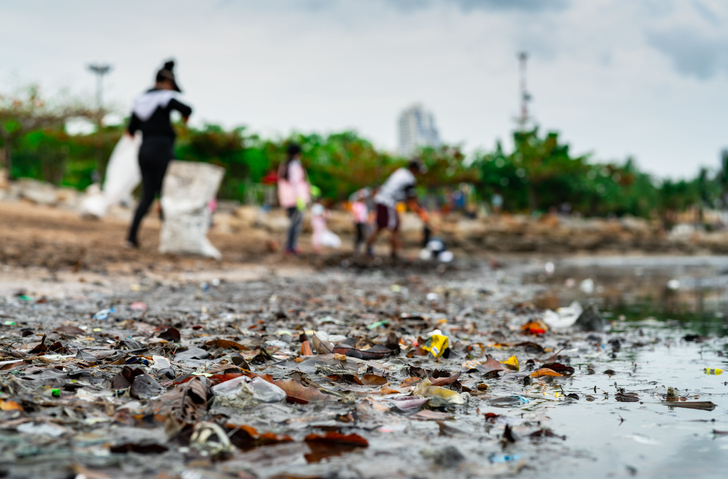
By Church Mutual Insurance
When disaster strikes, the effects are often felt across the country. Although the greatest devastation usually occurs in a concentrated geographical region, caring people from across the country feel a calling to help out however they can. Events such as hurricanes and tornadoes have been met with a great outpouring of assistance from individuals and organizations.
If your organization chooses to provide aid, you should consider the best way to lend your support while ensuring you are of value to the recovery efforts.
Donations
In many cases, the best way for concerned people and organizations to assist those in need is to provide financial donations. Financial support for victims of a disaster is often the most efficient and effective form of assistance. By donating money to a reputable organization, those donations can be quickly and easily transferred and directed to people or groups who need it most.
If you or your organization chooses to donate tangible items to the disaster relief cause, it is important to confirm what is truly needed and requested before taking action. Donating items that are not in need may cause logistical problems and consume valuable resources required to process supplies in greater demand. Check with reputable disaster relief organizations before gathering and donating tangible items.
Sending Volunteers

Another way for your organization to assist following a disaster is to send staff or volunteers to the area. Rebuilding efforts are huge undertakings that rely on the assistance of volunteers from throughout the United States. Church Mutual recommends you reach out to your local Red Cross, Salvation Army, or other organized disaster relief operations. Each can provide you with resources and contact information to make your volunteer efforts as efficient and effective as possible.
Management
Managing and organizing volunteers after a disaster can be a difficult task, so the first step when planning a disaster relief trip is to establish a coordinator. Appoint a coordinator who can focus their efforts on the many aspects of managing volunteer labor. The coordinator should always contact and work with local emergency management officials prior to implementing a volunteer strategy. They should also ensure volunteers undergo a background screening, submit a formal volunteer application, and obtain the necessary medical clearances.
Logistics
Once you connect with local emergency management officials, work with them to develop your volunteer strategy. Consider the number of people needed based on the tasks, the timeframe and location of your efforts, lodging and transportation accommodations for volunteers, and food and water for volunteers. Visit Church Mutual’s page on Volunteer and Safety Management for additional resources.
Tools and Equipment
Volunteers visiting disaster areas must be prepared with the tools and equipment needed to keep them safe and accomplish their tasks effectively. Common items used by disaster response teams include: First Aid Kit, food/water supplies, flashlights, extra batteries, towels, blankets, sturdy footwear, etc. Coordinate with local emergency management officials to determine what other tools might be needed.
Volunteer Safety
Prior to implementing your plan to volunteer following a disaster, it is important to recognize what safety precautions need to be in place. Volunteers are often eager to help out any way they can, and although enthusiasm is always appreciated, volunteer organizers should encourage volunteers to work within their means. Consider attributes which might be necessary to complete a task, and delegate work accordingly. Also, when assigning tasks, ensure volunteers are equipped with the proper skills and training needed to complete their jobs.
Church Mutual is there for you
The destructive force of weather and natural disasters cannot be contained or predicted. Church Mutual provides a full assembly of tools and resources to aid your organization in its volunteer efforts, and we will also be there for you in your time of need. Together, we’ll make sure your organization is prepared to handle whatever Mother Nature sends your way.
To learn more about storm recovery, visit ChurchMutual.com/GoingStrong.
Church Mutual Insurance is the nation’s premier provider of insurance services and thought leadership for worship centers, schools, senior living communities, nonprofit & human service organizations and camps.
2018 Church Mutual Insurance Company. All rights reserved. Protecting the Greater Good is a registered trademark of Church Mutual Insurance Company. The information contained in these materials is intended solely to provide general guidance on topics that may be of interest to you. While we have made reasonable efforts to present accurate and reliable information, Church Mutual Insurance. Company disclaims all liability for any errors or omissions, or for any actions you take or fail to take based on these materials. The information provided may not apply to your particular facts or circumstances; therefore, you should seek professional advice prior to relying on any information that may be found in these materials.


